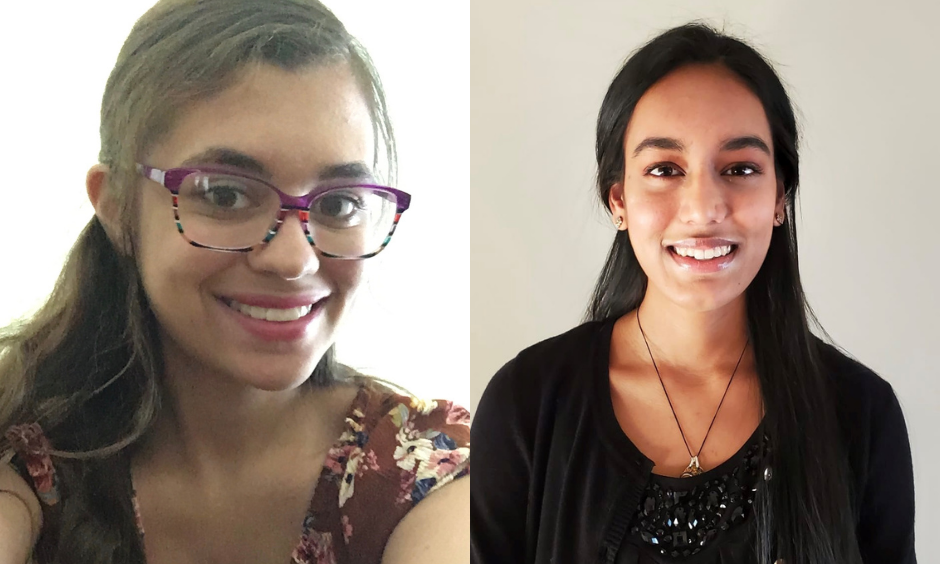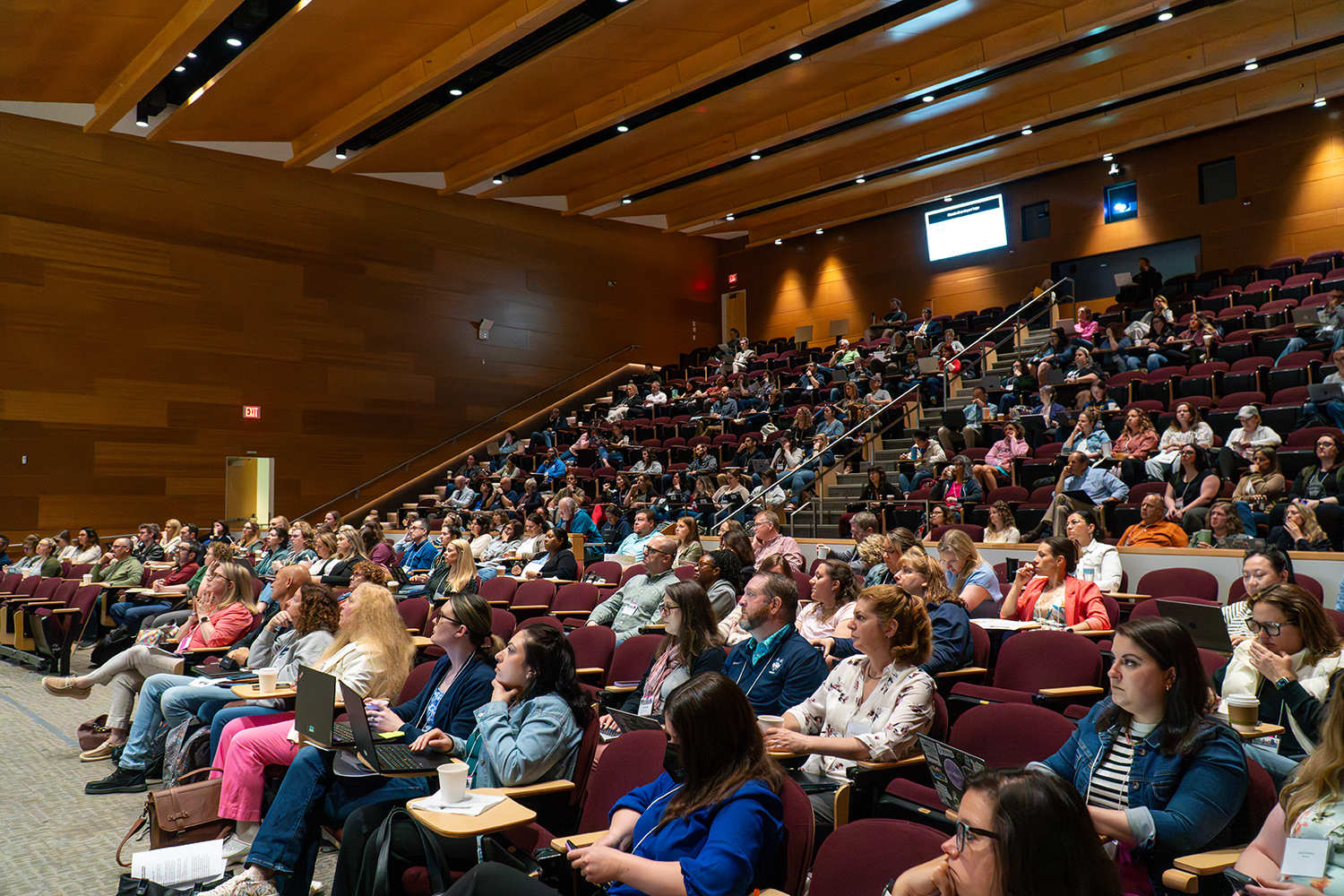Two University of Connecticut students have been recently named Goldwater Scholars. The Goldwater Scholarship is considered the nation’s premier scholarship for undergraduates studying math, natural sciences, and engineering. Schools can nominate a maximum of four students per year.
The students are: Katherine Lee ‘22 (CLAS) of Monroe, and Seema Patel ’22 (CLAS) of North Haven.
The UConn winners are among just 410 students selected nationally for the award.
The Goldwater Scholarship was established by Congress to honor the late U.S. Sen. Barry M. Goldwater, with the purpose of identifying students of outstanding ability and promise, and encouraging them to pursue advanced study and research careers. Scholars receive one- or two-year awards that cover the cost of tuition, fees, books, and room and board up to a maximum of $7,500 per year.
“Having two UConn students selected for one of the nation’s most competitive scholarships is a testament to the quality of our undergraduate research experience,” says Rowena Grainger, the STEM Fellowships Advisor in the Office of National Scholarships and Fellowships. “Katherine and Seema displayed their intellectual curiosity, commitment to a research career and have already contributed to their fields. I am immensely proud of them and look forward to seeing the impact of their discoveries in the years to come.”
Lee is an honors student majoring in structural biology and biophysics. She plans to pursue a doctorate in computational biology in order to conduct research and teach at an academic institution.
She has been working in Associate Professor of Molecular and Cell Biology Eric May’s laboratory since the summer of 2019 studying the binding affinities and specificities of antibodies to hyperphosphorylated tau protein found in the early stages of Alzheimer’s disease. Lee has studied the allosteric communication networks in these proteins to understand the effect of mutations upon protein dynamics in order to potentially design improved diagnostic antibodies and new therapeutics.
Lee received a Summer Undergraduate Research Fund (SURF) grant in 2020 to extend this work through studying the various conformational ensembles a given antibody can assume and use these principles to determine binding energetics.
She has been selected as a University Scholar and is investigating novel machine learning methods to predict the biochemical function of antibody variants given structural data.
Outside of the lab, Lee is a math tutor for UConn’s Q Center, a staff columnist for the opinion section of The Daily Campus, and has served as an EMT in her hometown.
“I am beyond grateful for receiving the Goldwater Scholarship and to the many people who have supported me to make this possible,” says Lee. “I would especially like to thank my mentor, Professor Eric May, for guiding me through each step of my research and always entertaining my zany ideas, and Rowena Grainger from the Office of National Scholarships and Fellowships and the Office of Undergraduate Research, for helping me put together my application.
“Research comes with thrilling highs but also long periods of discipline in which you must be patient and keep doing the silent work that may not appear in a journal, but is required for you to get there. The Goldwater Scholarship has been an amazing affirmation that I am on the right track and that scientific research is where I belong.”
Patel is majoring in molecular and cell biology and minoring in health care management and insurance studies. After graduation, she plans to pursue a combined medical and doctoral degree in pharmacology to investigate effective chemotherapeutic strategies for cancer patients. She is a Rowe Scholar, which is a program that provides opportunities (financial, academic, and experiential) to students from backgrounds underrepresented in health fields.
Her research career began in 2017 when she interned in the Chung Lab at the Yale School of Medicine, where she investigated the role of CatSper ion channels on sperm motility and fertility. Patel has been working in the Hadden Lab in the UConn School of Pharmacy since the spring of her freshman year, where she investigates the inhibition of a DNA repair mechanism called translesion synthesis (TLS). She has focused on the development and testing of potent anti-cancer drugs that disrupt a specific protein-protein interaction, termed Rev7/Rev3, of the TLS machinery. Using in vitro approaches, Seema has identified three novel TLS Rev7/Rev3 inhibitors and is currently characterizing their inhibitory potential in an ovarian cancer cell model for her University Scholar project.
Patel received a SURF grant in 2020, for which she wrote a review paper on the development of TLS inhibitors published in the journal Expert Opinion on Investigational Drugs.
Outside of the laboratory, Patel volunteers for Paper Airplanes, a nonprofit that teaches English to conflict-afflicted students in the Middle East.
Inspired by the abrupt shift to virtual learning following the COVID-19 pandemic, last year Patel co-founded the UConn branch of Learn To Be, a national nonprofit tutoring organization, where she will train UConn students to teach STEM courses to students from underprivileged backgrounds.
She is also an editorial assistant for the Elsevier Social Science and Medicine peer-reviewed journal Health Psychology.
“I think the process of applying for the Goldwater Scholarship taught me much about myself and what I envision my future career to look like,” says Patel. “It was a reflective journey, because I had to ask myself tough questions about why I am doing what I am doing. After having gone through the process, I have a clearer picture of my post-graduate plans. Completing the application strengthened my communication skills and taught me how to present my interests and me as a researcher and a student in the best light.
“On decision day, I was definitely nervous about the results but being awarded this scholarship gave me the confidence to believe in my strengths and hard work and know that it is possible to achieve anything I set out to do. I believe receiving the Goldwater Scholarship was a product of not just my merits but the extraordinary support I received from my mentors and friends.”
The Office of National Scholarships & Fellowships (ONSF) is a resource for students interested in learning more about the Goldwater Scholarship and other prestigious scholarships and fellowships that support study in all fields. ONSF is part of Enrichment Programs and is open to all graduate and undergraduate students at the University, including students at the regional campuses. For more information about STEM fellowships specifically, contact Rowena Grainger, STEM Fellowships Advisor and Health Research Program Manager.



